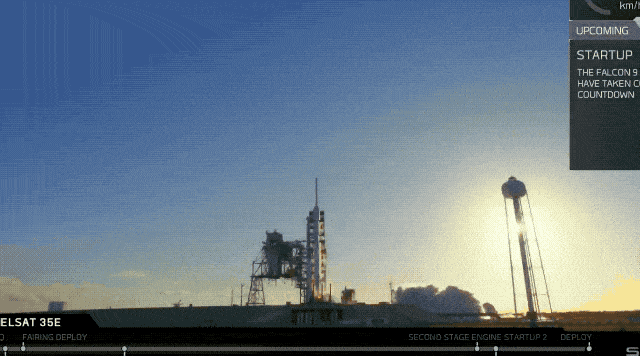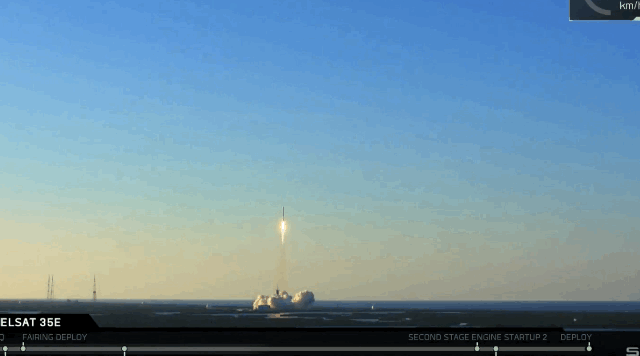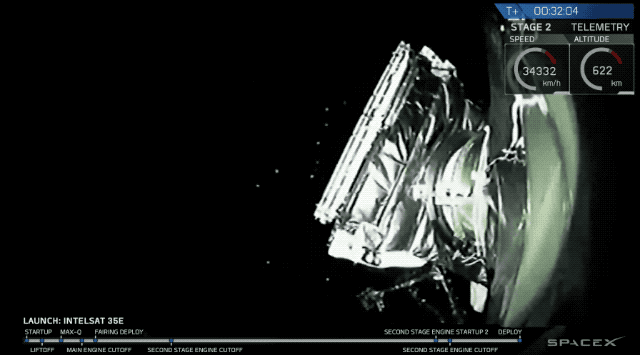SpaceX launched yet another Falcon 9 successfully today, for a mission from its LC-39A launch facility at NASA’s Kennedy Space Center in Florida. The launch is the third in under two weeks for SpaceX, since it completed successful missions on both June 23 and June 25.
The Intelsat 35e mission today involved launching an orbital communications satellite built by Boeing for SpaceX client Intelsat, which is designed to provide high-throughput network capability for broadband and video applications for a geographic area covering the Caribbean, parts of Europe and Africa.
SpaceX had originally set the launch for Sunday evening, but that launch was aborted with 10 seconds left in the countdown by an automated failsafe. This ended up being a problem with the acceptable limits set on the rocket guidance systems, rather than anything technically wrong with the rocket itself, SpaceX says.
Another attempt on Monday evening also saw the countdown stall at 10 seconds due to automated override, as a first stage measurement didn’t match a pre-launch figure. Elon Musk tweeted earlier on Wednesday that after a review of all systems, the team was ready to try again, and SpaceX says it had modified the figures in the automated check system to match the actuals.
Today’s mission will not include an attempt to recover the first stage of SpaceX’s Falcon 9 rocket, since at over 13,000 pounds, the payload is among the heaviest SpaceX has ever transported to orbit aboard a Falcon 9. As a result, there are no landing legs or grid fins (used for directing the rocket back to Earth after first stage separation) even installed on the rocket.
On Monday, SpaceX also recovered its first reused Dragon spacecraft, which splashed down in the Pacific Ocean after completing its resupply mission to the ISS, following a launch at the beginning of June.
Around half an hour after launch, SpaceX successfully deployed the Intelsat 35e satellite to its target geostationary transfer orbit. That means it’s an overall mission success for SpaceX, adding to its impressive track record for 2017.


